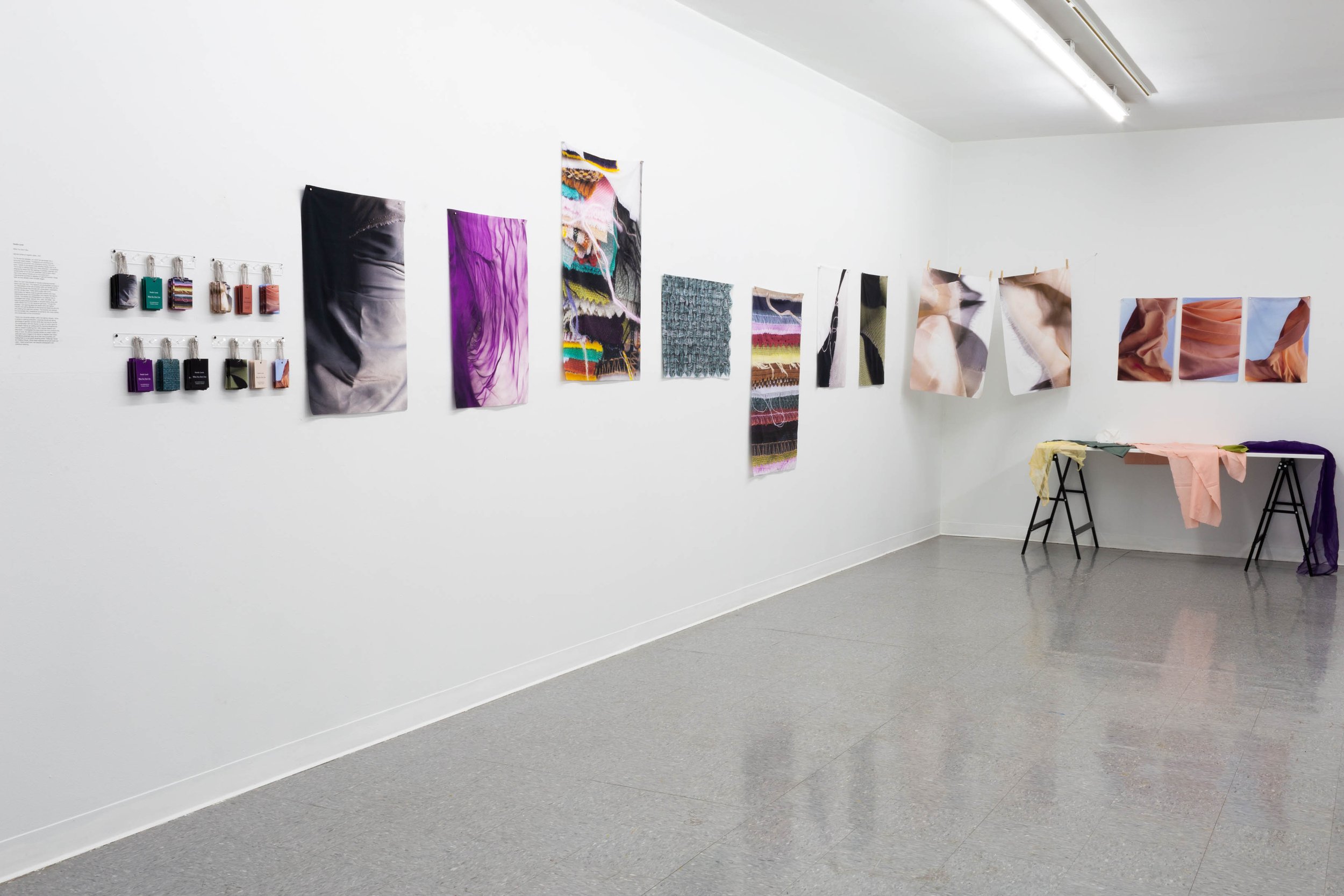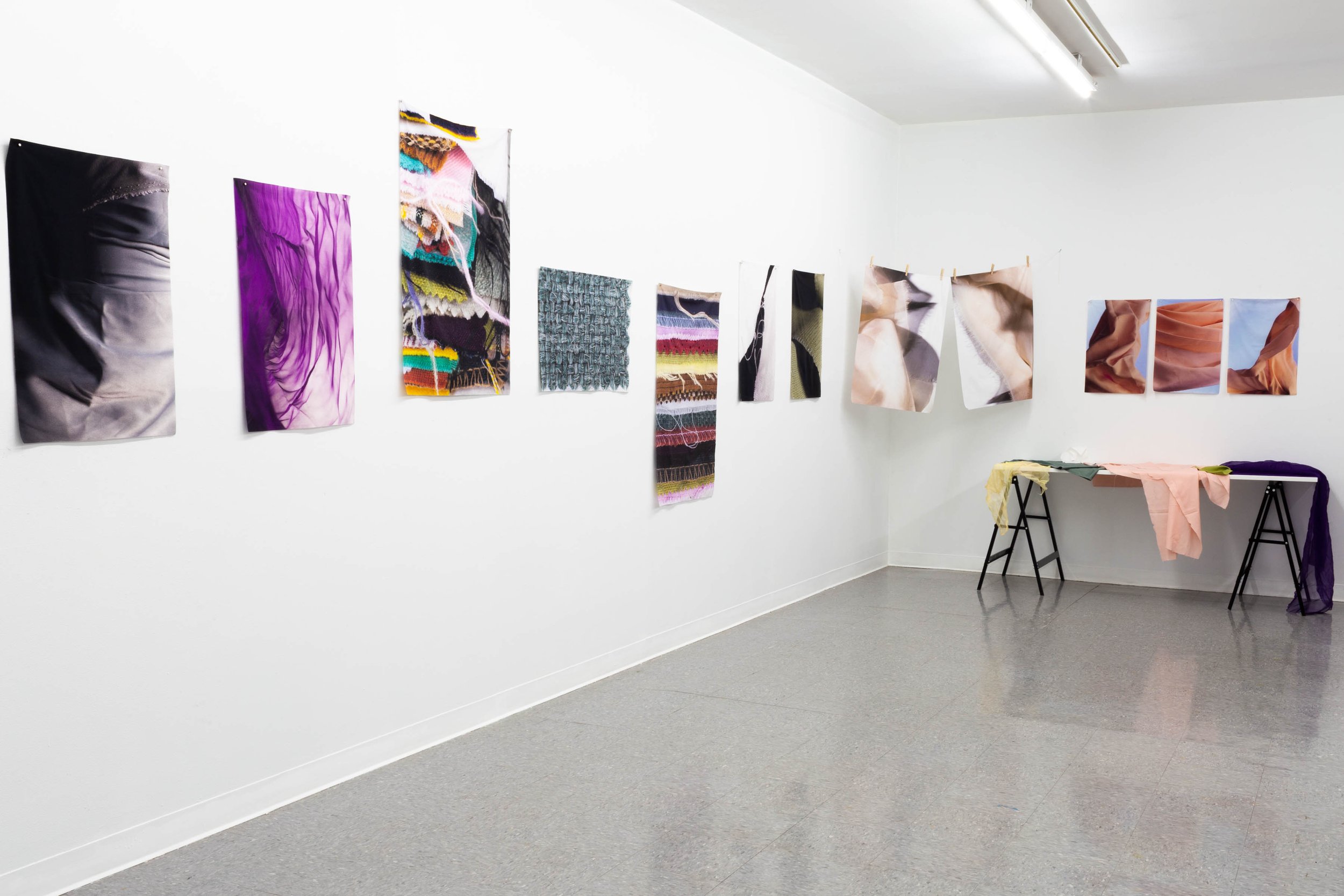What You Don’t See
A comprehension of the sustainability issues within the fashion industry.
What You Don’t See
For the last few decades, our world has developed into a consumer-based society. Propaganda and advertising are brainwashing consumers into consistently buying more and more. Fashion is the second most polluting industry next to oil. This is due to clothing waste from mass production, microplastics entering the ocean from the washing of synthetic materials, and contamination of the soil from pesticides used to grow cotton. Well known fashion brands turn to manufacturing in impoverished countries to capitalize on garment workers’ cheap labor as they already make unlivable wages.
What You Don’t See focuses on visually analyzing recycled fabrics and their form. This research and photographic process is my interpretation of the use of textiles within our society and the overarching issues that coincide with consumption, exploitation, and the climate crisis. These works subtly refer to the appreciation for fabrics made by garment workers who have experienced abuse and manipulation from popular fast-fashion brands. The textiles are photographed in an abstract way to investigate their shape, texture, form, color, and detail. I am featuring secondhand purchases or recycled fabrics along with subtle details from my own personal garments. Through this process, I am learning about the issues within the fashion industry and calling attention to the consumer-based brands who are profiting from garment workers. This practice has relieved the eco-anxiety that I experience as someone who loves clothes and conservation of the environment.
There is an immense problem within the fashion industry. When it comes to clothing production, corporate brands are taking advantage of garment workers while also harming the climate. The complication with this results in a lack of human rights for the people making our clothes and the warming temperatures that our planet is suffering from. With intense research and discussion, I investigated this issue which led me to produce this body of work. By utilizing recycled textiles as subject matter, I executed macro images of the fabrics to heighten their detail. The fabrics presented were all on their way to landfills until finding them in a non-profit recycling center, Pittsburgh Center for Creative Reuse. While these materials are all pre-loved and used, I have turned them into beautiful photographs with extensive meaning.
Resources
-
Fashion Revolution is a global movement of fashion activism to conserve and restore the environment while valuing people over profit.
-
Good On You is a directory that analyzes brands and rates them based on their sustainable and transparency practices.
-
Common Objective is the global tech solution for sustainable fashion business.
-
Re/make is a community of fashion lovers, women rights advocates, and environmentalists on a mission to change the industry’s harmful practices on people and our planet. They make sustainability accessible and inclusive across our three pillars of work: education, advocacy, and transparency.
-
Fashion Act Now is the originator of defashion, a provocative term that describes the role that Fashion must play in degrowth. Whilst Fashion Act Now focuses on clothing systems, their mission is to challenge and transform the values behind this, which are leading us towards ecological breakdown.
-
Clean Clothes Campaign offers direct solidarity support to workers fighting against worker rights violations. They also collaborate with workers to co-develop global campaigns on achieving systemic goals like the payment of living wages and the eradication of gender based violence in the workplace.
-
The Sustainable Fashion Forum is a global on and offline community for conscious fashion enthusiasts and sustainability advocates (of all industry levels) looking to make a tangible impact in their community and beyond.
-
Based at London College of Fashion, Centre for Sustainable Fashion provokes, challenges, and questions the status quo in fashion; contributing to a system that recognizes its ecological context and honors equity.
-
Fair Wear Foundation’s mission is to see a world where the garment industry supports workers in realizing their rights to safe, dignified, properly paid employment.
-
TRAID is a charity working to stop clothes from being thrown away. They turn clothes waste into funds and resources to reduce the environmental and social impacts of our clothes
-
Redress is an environmental charity with a mission to prevent and transform textile waste to catalyze a circular economy and reduce fashion's water, chemical and carbon footprints. Their programs work to change mindsets and practices to stop the creation of textile waste now and in the future, as well as creating systems and partnerships that generate and showcase value in existing waste.
INSTALLATION SHOTS





























